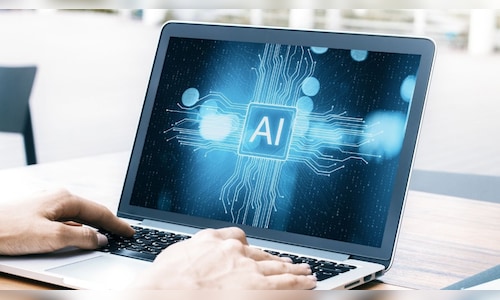- GenAI has the potential to allow retail marketing teams to increase efficiency and drive profit.
- CMOs who lean on their organization’s expertise and identify optimized use-cases will find the most success.
- Though GenAI has risks, retailers should work to overcome challenges and unlock the tool’s benefits.
Loading
Something is loading.
Thanks for signing up!
Access your favorite topics in a personalized feed while you’re on the go.
download the app

Whether they know it or not, retail CMOs are in a sprint race.
GenAI will transform the way retail marketing teams operate by providing CMOs with powerful tools to enhance customer experiences, streamline operations, and drive profitability. The magnitude of the opportunities mean those who find successes with GenAI earliest will win considerable market share from the slow movers.
According to Gartner research, 44% of retail leaders are already utilizing GenAI and another 37% plan to invest in it in the next 6 months.
The challenge for CMOs is to upskill enough to own and drive forward efforts to capitalize on a new, rapidly evolving field, reworking long-standing team structures and processes in doing so. That is no mean feat, not least given all of the risks involved in launching projects. Potential pitfalls involve IP protection, communications with customers and employees, as well as ethical and legal implications.
To succeed, CMOs will have to lean on expertise from across their own organizations. The starting point is identifying the highest-impact, most-feasible use cases for their organizations to invest in.
Such is the pace of developments that some retailers have already achieved real business results from their activities, while others haven’t begun.
The author, Matt Moorut, director analyst, Gartner marketing practice
Gartner
For those in the latter group, it’s important to know what peers have achieved already. There are already public examples of retailers who, like Carrefour, have used gen AI to power the creation of more than 2,000 product description sheets for its French ecommerce site.
You can also find examples of brands that have used AI to show generated imagery of clothes on a diverse set of body types, such through Google Shopping. Some retailers are already sharing how they’ve improved the efficiency and effectiveness of their adverts thanks to generated copy and imagery in social ads. And several retailers have launched GenAI powered chat assistants that offer product suggestions based on a much deeper set of inputs than had previously been possible.
But this is just the tip of the iceberg. An increasing number of retail CMOs are pressing ahead with gen AI use cases that may not be visible to the public eye, but drive substantial improvements in the ways that marketing teams operate. A couple of examples that promise great improvements to marketing performance are assisting in customer journey orchestration and personalization.
Several of these advances will come with opportunities to optimize resources across the marketing organization. In the same way that machinization of factories required more engineers and fewer laborers, gen AI will drive a rebalancing of staff involvement. It also involves legal and reputational ramifications as regulators struggle to keep up with developments and protect consumers.
Retail CMOs have had to deal with shocks to their operations over the past few years to maintain performance. Now, the need is to work through challenges that arise in the race to unlock opportunities for growth before competitors. These opportunities promise much to the winners and warrant careful work to realize.
Matt Moorut is director analyst in the Gartner marketing practice.





